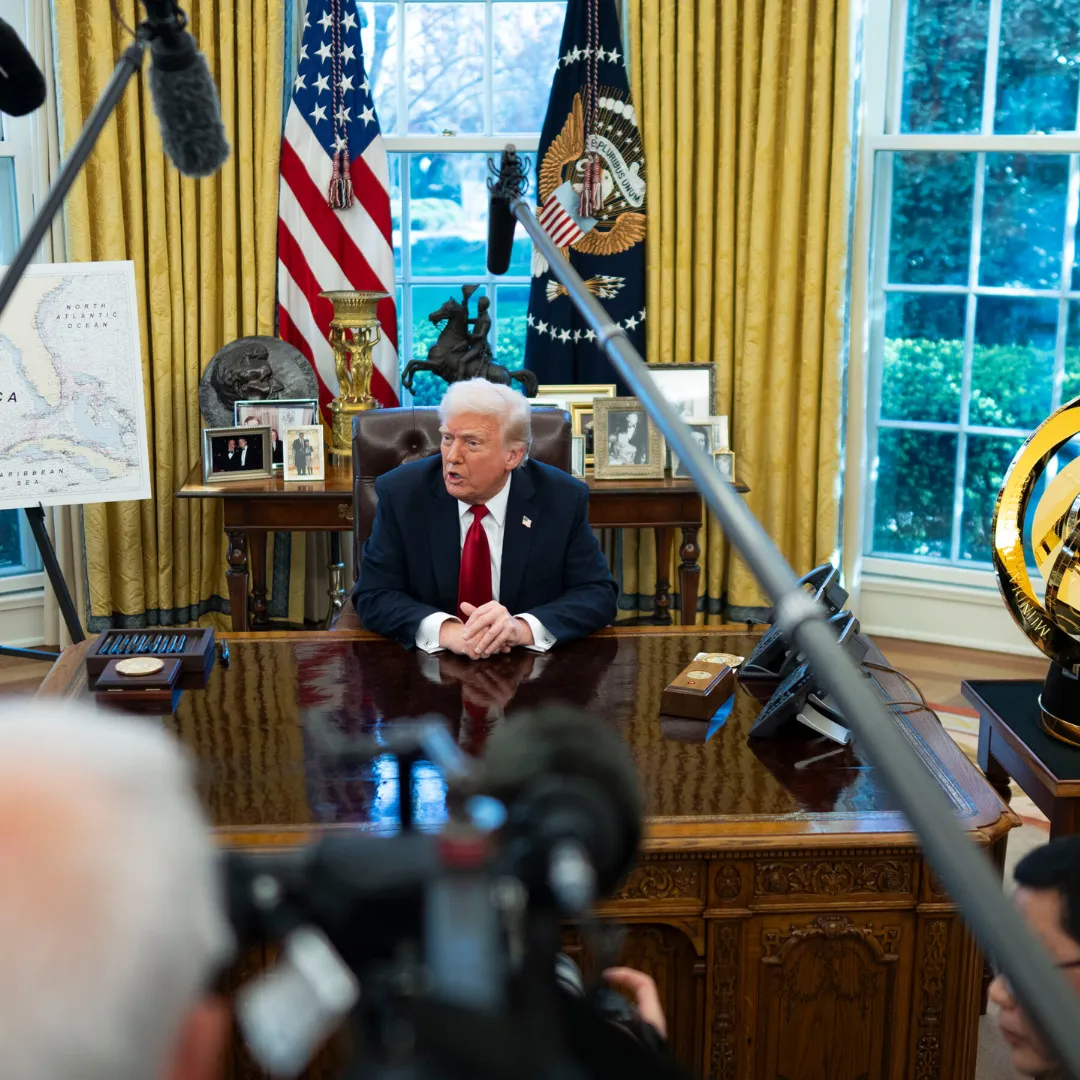
The MAGA movement is raging—and this time, it’s not at Democrats, the media, or the deep state. It’s at Supreme Court Justice Amy Coney Barrett, one of former President Donald Trump’s most prominent judicial appointments, who has found herself in the crosshairs of the very base that once celebrated her rise.
In a decision handed down this week, the Supreme Court allowed the Trump administration to continue deportations under the Alien Enemies Act of 1798, a centuries-old law revived to target suspected gang members and foreign nationals from countries deemed a threat to national security.
But it wasn’t the ruling that sparked fury—it was the dissent, and more specifically, who signed onto it.
Justice Amy Coney Barrett joined the court’s three liberal justices in part of the dissent, expressing concern about the haste and procedural shortcuts the Court had taken to reach the decision.
While she did not oppose the deportations outright, her alignment with Justice Sonia Sotomayor’s criticism of the emergency ruling process triggered an online riot.
“Disgusting fraud,” one Trump supporter posted on X. “She got a book deal and sold out the base.”
It wasn’t long ago that Barrett stood as the MAGA movement’s crown jewel of judicial conquest—a staunch Catholic, mother of seven, and Federalist Society darling who replaced the late liberal icon Ruth Bader Ginsburg in the weeks before the 2020 election.
Her confirmation was rushed through with lightning speed, triggering Democratic outrage and MAGA celebration.
Now? She’s being called a “Commie,” a “backstabber,” and even “worse than Fauci.”
“Amy Commie Barrett,” conservative influencer Catturd posted to 3.6 million followers. “Trump appointed her and gave her her dream job... and she’s been an ungrateful, backstabbing POS since day one.”
The post continued: “She got a million-dollar Liberal book deal within weeks. Her whole goal in life is to be praised by The New York Times. Weak, coward, sellout, fraud. She’s everything that’s wrong with this country.”
The ruling itself was not a clean ideological split.
The unsigned majority opinion allowed deportations under the Alien Enemies Act to continue, but required that those targeted must be granted due process—a hearing in court—before they can be removed from the country.
Barrett’s partial dissent wasn’t about whether the government could deport alleged gang members. It was about how quickly the Supreme Court jumped in, halting a district court’s review before a full hearing could be held.
“In its rush to decide the issue now,” Sotomayor wrote, “the Court halts the lower court's work and forces us to decide the matter after mere days of deliberation and without adequate time to weigh the parties' arguments.”
Barrett agreed.
But nuance, it seems, was in short supply online.
“She sided with the libs to protect the cartels. That’s all I need to know,” posted conservative influencer Rogan O’Handley. “5-4. And she was the one who almost blew it.”
Another user replied: “The bigger issue is that Barrett hates Trump.”
The criticism quickly turned gendered and personal. “All the men voted the law,” conservative commentator Jeff Younger wrote. “All the women voted their feelings.”
One viral post said: “Appointing a woman, namely Amy Coney Barrett, was a huge mistake.”
Justice Sotomayor, joined by Ketanji Brown Jackson and Elena Kagan, wrote a sharp dissent—but it was Barrett’s presence that transformed judicial disagreement into full-blown betrayal.
Just years ago, Trump himself hailed Barrett as a “brilliant legal mind” and a “true constitutionalist.” Her confirmation cemented a 6-3 conservative majority on the court and was billed as a generational triumph for conservative legal doctrine.
Now, some of Trump’s most vocal supporters want her gone.
Of course, there’s a problem: Supreme Court Justices can’t be fired. Not by the president. Not by the public. Not by angry influencers on X.
Still, the political cost of Barrett’s perceived betrayal may ripple beyond the courtroom. For a movement obsessed with loyalty and optics, her break from the MAGA narrative has become a warning sign—especially to other justices once considered part of the “Trump bench.”
Fueling the fire is Barrett’s reported seven-figure book deal, announced shortly after her confirmation. Some MAGA critics now frame the deal as evidence of her drift toward elite acceptance, accusing her of chasing media approval rather than upholding the president’s agenda.
“She got the robe, then the book deal,” one poster wrote. “Next up: a Netflix special?”
Others suggested Barrett had “fooled” Trump during the nomination process—pretending to be a constitutional warrior, while secretly craving liberal validation.
“She’s a wolf in sheep’s wool,” one post read. “She wanted to be seen as principled by CNN more than she wanted to defend America.”
Notably, Trump himself has not commented publicly on Barrett’s dissent. Instead, he hailed the ruling overall as “a great day for justice in America.”
The silence may be strategic.
While Barrett’s partial dissent sparked online outrage, the 5–4 decision still went Trump’s way. Attacking a justice he appointed—who still votes with conservatives the vast majority of the time—might fracture a fragile coalition in an election year.
Still, MAGA world wants blood. And Barrett, once the hero in black robes, is now being fitted for political exile.
The case now heads back to a federal district court in Washington, D.C., where Judge James Boasberg will determine whether deported individuals should be brought back for hearings.
The Trump administration, now armed with Supreme Court approval for the basic use of the Alien Enemies Act, has vowed to expand the scope of deportations, especially targeting Central American gang affiliates.
But the ruling also means each deportation case must include due process, and Barrett’s dissent signals that the Court may not let future abuses slide.
In the words of one legal analyst: “She didn’t stop the train. She just warned them they’re speeding through a yellow light.”
This isn’t just a story about a court ruling.
It’s about what happens when political movements appoint judges based on loyalty—and then get upset when those judges act like judges.
Barrett didn’t side with cartels. She sided with the Constitution. But for MAGA’s loudest voices, that distinction doesn’t matter.
She was expected to play a role in the script. And when she didn’t, the crowd turned.






